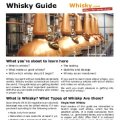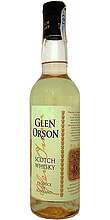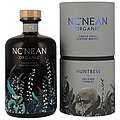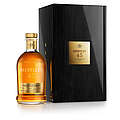The Pronunciation of Distilleries' Names
Laphroaig (La-fróyg) and Pittyvaich (Pitti-véch)
Some Single Malt Scotch Whiskies indeed have unpronounceable names - even for locals. It is generally unknown that these Gaelic names are directly descended from the Celts who originally lived in Germany.
We have provided sound files on our distillery pages, which you can access by clicking on a play-button on the relevant page.
The most requested Single Malt Whisky in the world (Glenfiddich) is mispronounced just as often as it is requested. In Gaelic, an ending on CH is pronounced like K. Gaelic was carried to the northernmost regions of the British Isles two thousand years ago with the migration of the Celts. Like Celtic, Gaelic is an exclusively spoken language; there are no written records.
Laphroaig, Pittyvaich, Lagavulin, Strathisla and Teaninich are names from a bygone era that seem exotic and foreign to us nowadays. But the internet is your friend. On a PC, tablet or smartphone, you can call up the appropriate pronunciation for any Whisky variety at the touch of a button. Who would know that 'Glen Garioch' is pronounced 'Glen-Gírie'?
For decades, the Gaelic language had been in constant retreat. It was considered old-fashioned. Only a few experts preserved the language, in which there are no written records. Today, Gaelic enjoys growing popularity. There are Gaelic radio stations again and Gaelic courses at adult education centres.
In the following article, Patricia Jantke takes a closer look at the Gaelic language:
Scottish Gaelic
Article by Patricia Jantke (Translated by Whisky.com)
Scottish Gaelic, closely related to Irish Gaelic, is one of the oldest languages in Europe. It is a language that not only produces and has produced wonderful poetry and prose throughout its history. It can also be heard daily on BBC Scotland's Gaelic radio. It is still spoken today by around just under 60,000 Gaels, mainly in the Western Isles, i.e. the Outer Hebrides, the Inner Hebrides and still in some areas in the west of Scotland.
Scottish Gaelic belongs to the Indo-European language group of Celtic languages and developed from Irish. Until the 17th century, Gaelic was the common written language of Ireland and Scotland. It was only when cultural links were broken that the language developed differently in the two countries.
Contrary to what is often claimed, Scottish Gaelic was never actually banned after the union of the kingdoms of Scotland and England. However, the use of the language was suppressed by a variety of ordinances and laws. In 1872, the Scottish Education Act introduced compulsory education in Scotland. Gaelic was not included as a subject in the curriculum and the teaching of Gaelic in schools ended. English was now the sole language of instruction and children who spoke Gaelic at school were punished with beatings until the 1960s.
Due to the expulsion of the small Gaelic tenants from the Highlands and several large waves of emigration at the end of the 19th and beginning of the 20th century, the number of speakers continued to decrease drastically, so that Gaelic almost disappeared from the Highlands.
It was only in the 1960s that fears developed of Scottish Gaelic soon dying out completely and private initiatives were formed to fight for the preservation of the language. In many places, bilingual street signs were erected, and Gaelic-language schooling and even academic education were restored. This period also saw the founding of an institute for higher education on the Isle of Skye, Sabhal Mòr Ostaig - today the Gaelic campus of the University of the Highlands.
In the meantime, a number of institutions are working to preserve the Gaelic language, and since 2005 Gaelic has been politically recognised as Scotland's second official language. There are Gaelic pre-school groups and school classes, promotion in the cultural and political spheres through the Bòrd na Gàidhlig, Gaelic radio broadcasts on BBC Radio nan Gàidheal, the Gaelic television channel BBC-Alba (since September 2008). Also, there is the Gaelic Book Council, the Comhairle nan Leabhraichean, which ensures the publishing work, distribution and dissemination of Scottish Gaelic literature. The Proiseact nan Ealan is an agency that also promotes Gaelic arts nationally and internationally.
It is not only in Scotland that there is a struggle for the preservation of the old language and culture. In Canada, the Gaelic College in Nova Scotia should be mentioned, and the German Centre for Gaelic Language and Culture in Bonn also offers the opportunity to learn about the culture and language through a variety of events and courses.
Fans of Scotland have long been familiar with the harsh sound and melancholic charm of this language through music. Music groups such as Runrig, Capercaillie and better-known performers such as Julie Fowlis, Mary Smith, Margaret Stewart, Blair Douglas etc. are ambassadors of a language and culture. With their interpretations of old and new Gaelic songs, they enrich the European cultural patchwork and courageously but relatively hopelessly oppose language change through the increasing influence of English.
Representatives of Gaelic language and culture are of course also the Single Malt Scotch Whiskies. Many of them still bear Gaelic names or names that more or less successfully accommodate the Gaelic pronunciation in English spelling.
For many Single Malt fans, the correct pronunciation of the name is a real challenge.
Here are some Gaelic Whisky Names:
| Name | Gaelic Original | Translation |
| An Cnoc | An Cnoc | the hill |
| Ardbeg | Àird bheag | small knock |
| Ardmore | Àird mhòr | big knock |
| Tè Bheag | Tè bheag | a small (dram) |
| Macnamara | Mac na mara | son of the sea |
| Poit Dhubh | Poit Dhubh | illegally distilled |
| Cragganmore | creagan mòra | big rock |
But enough words now!
To enjoy your Single Malt, we wish you slàinte mhath, which means "good health" or "to your health".
Le deagh dhùrachd,
Patricia Jantke













